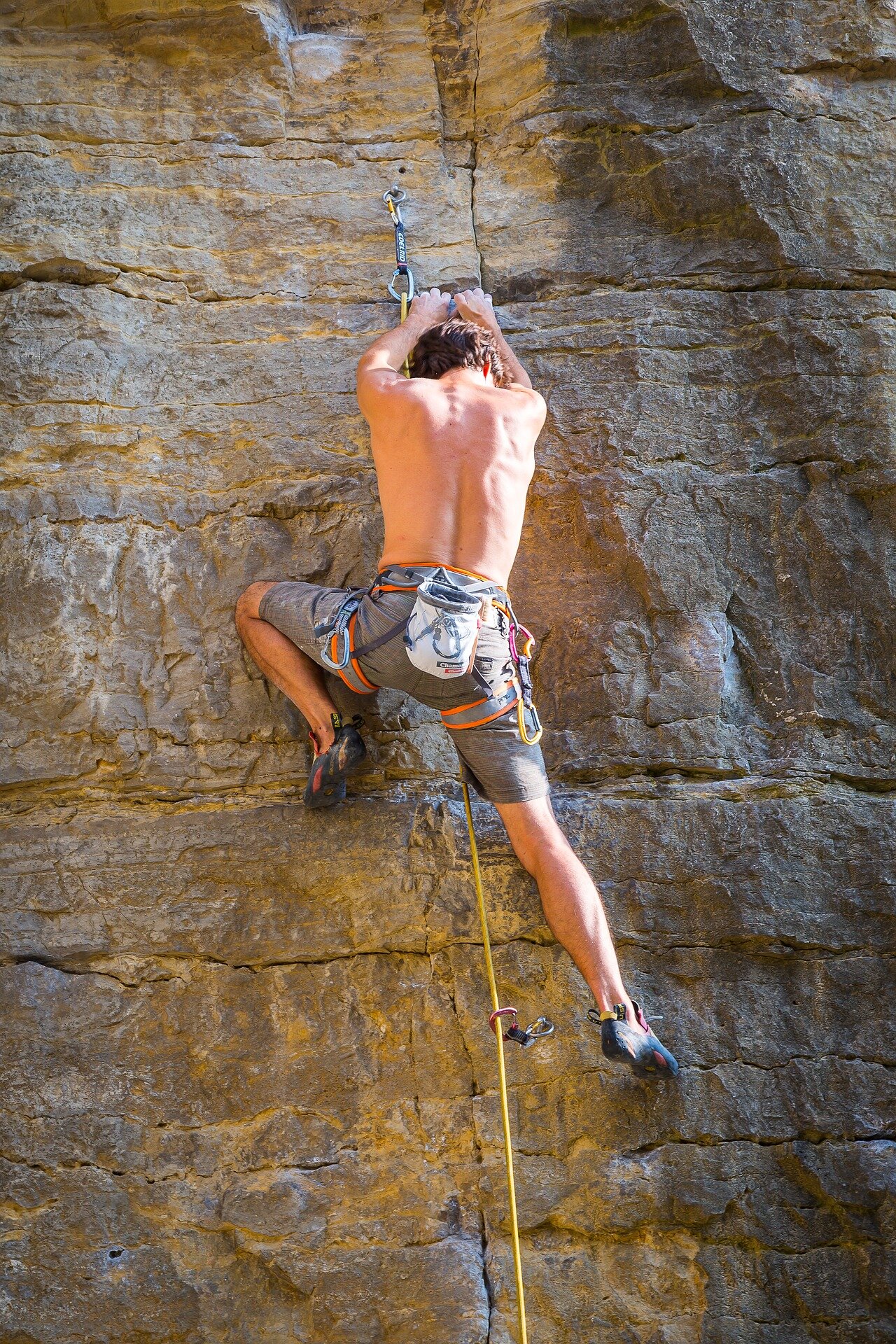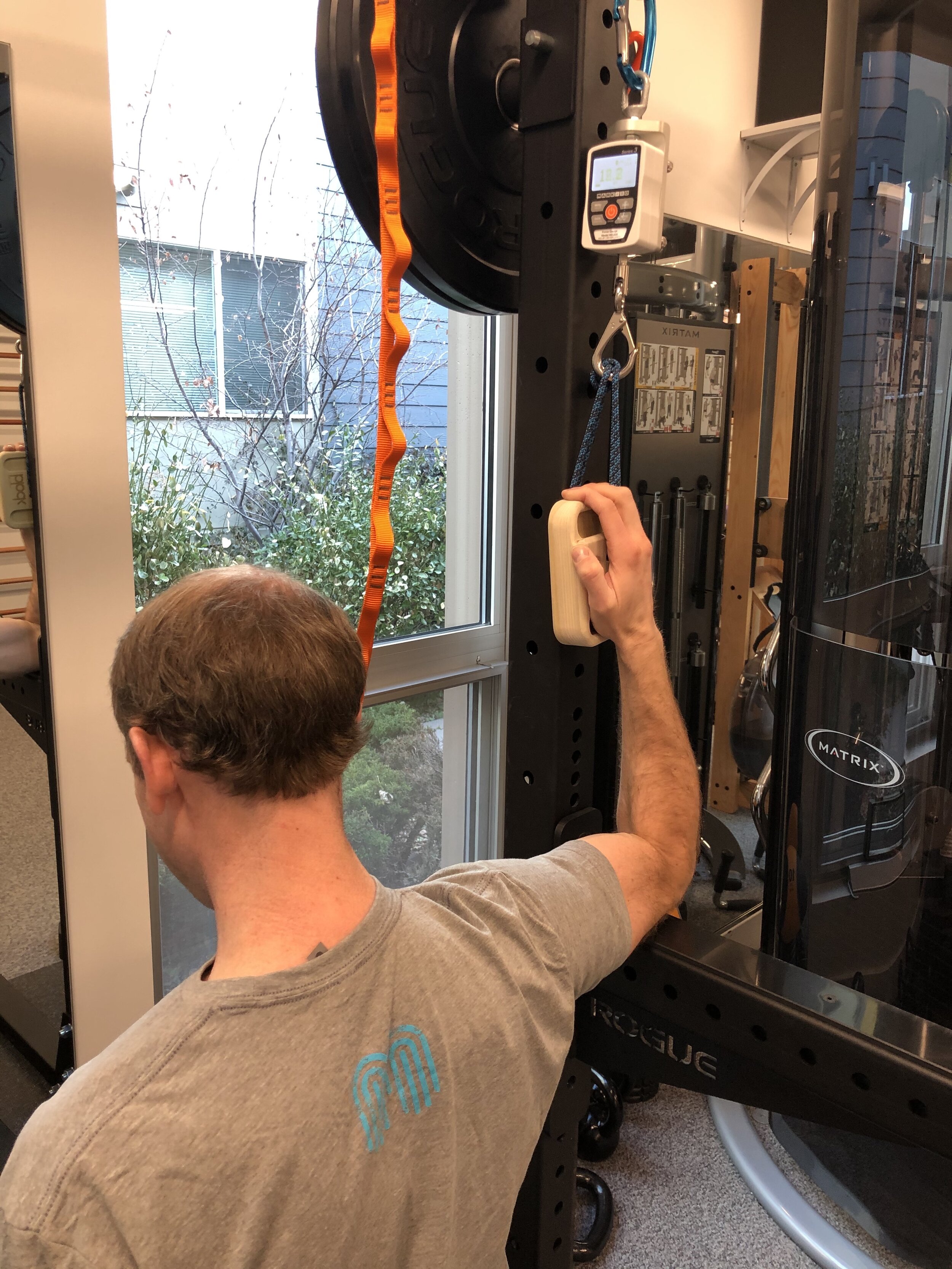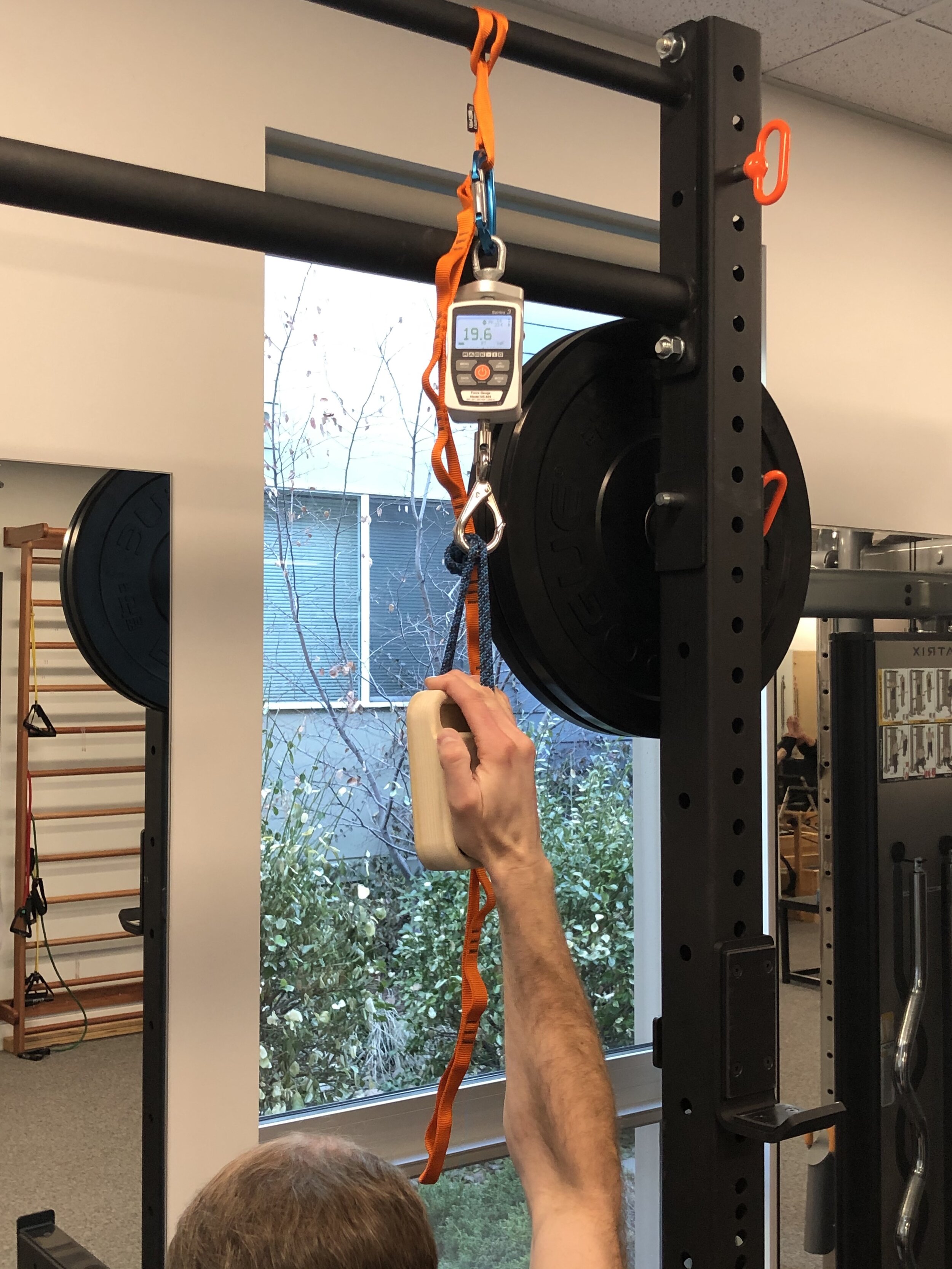Finger strength has been shown to have the greatest impact on climbing performance. Without adequate grip strength or endurance the larger muscles of the upper body cannot produce adequate force to complete a climbing movement. Rock climbing creates unique demands for the forearm muscles taxiing both the aerobic and anaerobic energy systems. On average, climbers utilize an average work to rest interval of 8 seconds to 2 seconds at approximately 40-80% of their maximum voluntary isometric contraction (MVIC) strength. Interestingly, loss of blood flow has been noted with contractions above 60% MVIC. Side to side differences in strength or endurance of these muscle groups can place a climber at a higher risk of injury in the fingers or adjacent area (shoulder, elbow). A recent study documented how Physical Therapists can accurately assess finger strength in this group.
Michailov and colleagues examined the reliability and validity of multiple holds in a group of trained climbers (Research Quarterly For Exercise and Sport. 2019). Each participant completed four tests utilizing an open finger grip position after a cardiovascular and climbing specific warm up. The tests included
Maximum strength with arm fixation
Maximum strength without arm fixation
All out test of strength for 30 seconds
Intermittent test without arm fixation at 60% maximum contraction held for 8 seconds on and 2 seconds off until fatigue
Authors reported normative data for these holds and noted climbing ability was most associated with the maximal strength test without arm fixation. Further, the all out test for 30 seconds had the best relationship to sport climbing.
We find these tests to be extremely valuable in our Boulder Physical Therapy practice when assessing injured climbers or determining their readiness to return to sport. Click Here to schedule your next assessment with the experts at MEND



